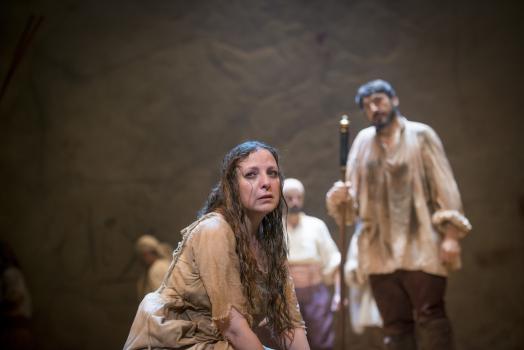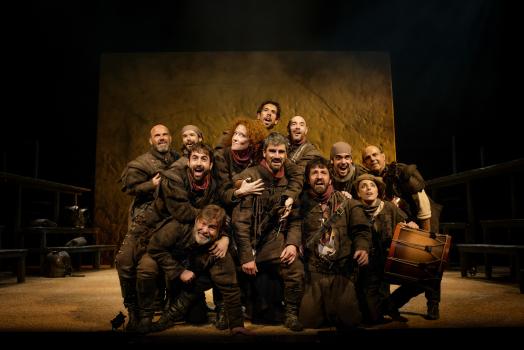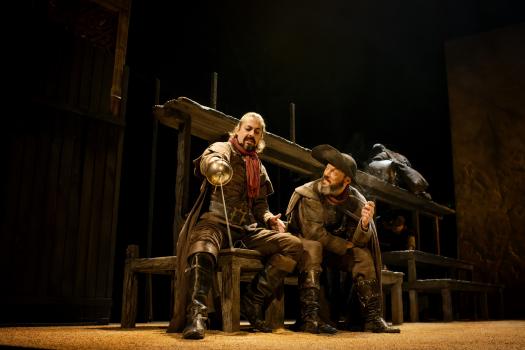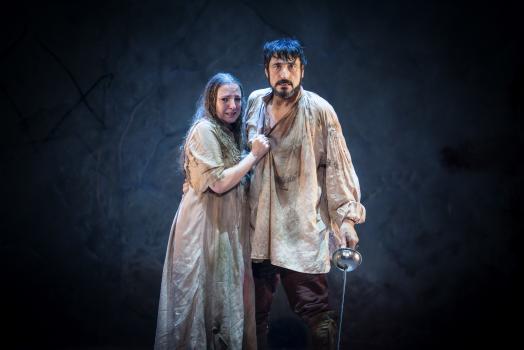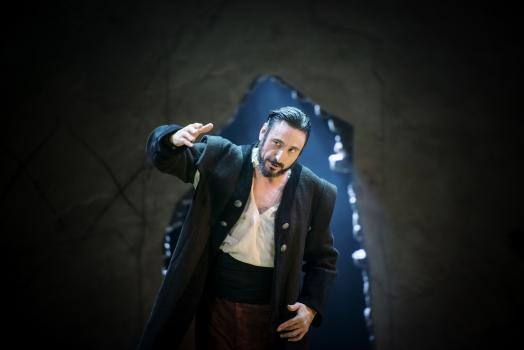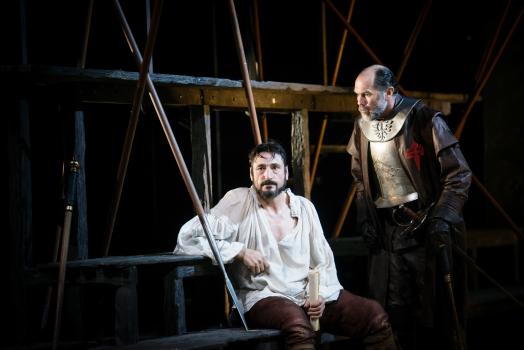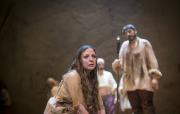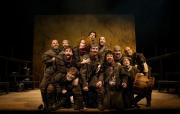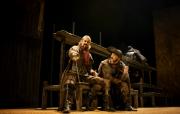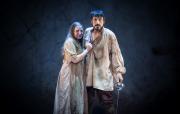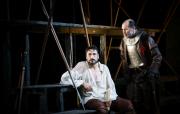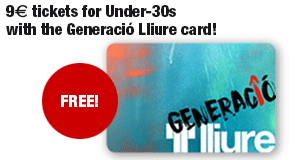Add new comment
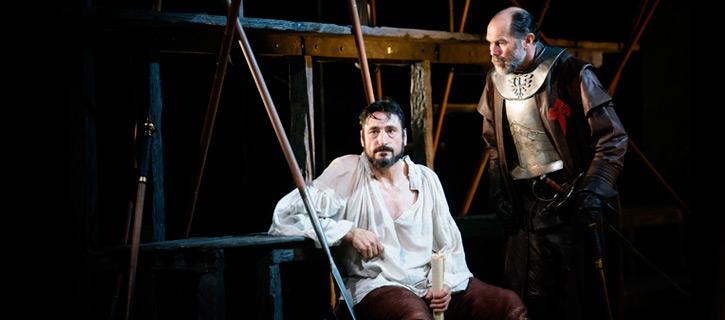
cast intèrprets Blanca Agudo soldier, drum boy / Pedro Almagro scribe, soldier / Francesco Carril Don Mendo, plebeian / Rafa Castejón Juan / Jose Carlos Cuevas plebeian, soldier / Alba Enríquez Inés, plebeian / Alberto Ferrero pelotari, plebeian, soldier / Nuria Gallardo Isabel / Carmelo Gómez Pedro Crespo / Álvaro de Juan Nuño / David Lorente Rebolledo / Jesús Noguero captain Don Álvaro de Ataide / Joaquín Notario Don Lope de Figueroa / Egoitz Sánchez king, pelotari, plebeian, soldier / Clara Sanchis Chispa / Jorge Vicedo plebeian, soldier / Karol Wisniewski plebeian, soldier / Óscar Zafra sergent
singer Rita Barber / guitar Juan Carlos de Mulder - Manuel Minguillón / off musica Daniel Bernaza cornetto barroco and Fratelli Mancuso voices
setting Max Glaenzel / costumes Pedro Moreno / lighting Juan Gómez Cornejo / musical selection and adaptation Ignacio García / choreography Nuria Castejón / verse adviser Vicente Fuentes / fencing teacher Jesús Esperanza
director assistant Javier Hernández-Simón
produced by Compañía Nacional de Teatro Clásico
with the collaboration of Loterías y Apuestas del Estado
show in Spanish
lenght 1h. 40' no interval
recommended by the Servei Educatiu del Teatre Lliure
follow #alcaldezalamea on twitter
| from Wednesday to Friday | 20:30 |
| Saturday | 21:00 |
| Sunday | 18:00 |
| tariff a | |
| general ticket | 29€ |
|
advanced sales (before the premiere) |
26€ |
| Wednesday (the audience day) | 22€ |
|
NEW! Subscriber’s Flat Rate |
20€ |
|
with discount* (except on the audience days) |
24,50€ |
|
NEW! Carnet Jove and under 25s tariff top row (on certain performances) |
15€ |
*15% discount with the card senior citizens, unemployed, disabled, large families and single parent families, TNC and Mercat de les Flors subscribers, TR3SC, local regional libraries and theatres. To the La Vanguardia subscribers, the discount is only avalaible at the box office.
The Compañía Nacional de Teatro Clásico directed by Helena Pimenta returns with one of the texts from the Spanish Golden Age that best explains the abuse of power. Calderón is always contemporary.
A drama of honour, El alcalde de Zalamea [The Mayor of Zalamea] deals with the excesses committed by soldiers with impunity on citizens, and the obligation for the villages and towns in the path of the army to billet soldiers in their homes. The Compañía Nacional de Teatro Clásico has staged it three times: in 1988, directed by José Luis Alonso, in 2000 in a production by Sergi Belbel, and in 2010, directed by Eduardo Vasco. Twenty-four performers, including actors and musicians, will present one of the most frequently performed and best known pieces from the theatre of the Spanish Golden Age.
As a masterpiece of the Spanish Golden Age and of universal drama, El alcalde de Zalamea defies simplification. Each era, each circumstance, each landscape discovers what it needs in the play. After three previous productions of the play, the CNTC is using a new approach this time - different in terms of strength, in order to continue revealing what lies behind the words of Calderón to the audience.
It is difficult to find a dramatic text that contains scenes that are so exciting and so perfect. The transition from comedy to tragedy and vice versa seems like an impossible pirouette. We are left breathless when one becomes the other, when one conflict becomes its opposite, when day becomes night, and we seek encouragement at times that are not so logical which give us this extraordinary conception of space and time.
It is a play about love because the author emphasizes heartbreak. It is a play about justice because injustice predominates. It is also about honour as being synonymous with fame, opinion or the essential virtue of the soldier, of the army of a state, or with conscience and personal dignity - what all human beings are entitled to. And dishonour, abuse and hypocrisy appear too often and too early.
And what of the exceptional construction of the characters - those from Zalamea and those who arrive there? They are contradictory, as always in Calderón's work, and great, overcoming a tempest that begins with the first verses of the play, and attempt to hold out until the end of their theatrical life, while despite everything, conveying to the viewer the idea that life goes on.
This is the story of a failure, the abuse of human beings by others, of a battle lost, as is human life itself. Calderón appears to want to throw this idea at us, as Cervantes did. And in this project that I am about to start, word after word, verse after verse, just as they did, I am committed to life, to the fiction that explains to us why, like them, I believe in the dream of the impossible that has lived inside us since the beginning of time.
Helena Pimenta




